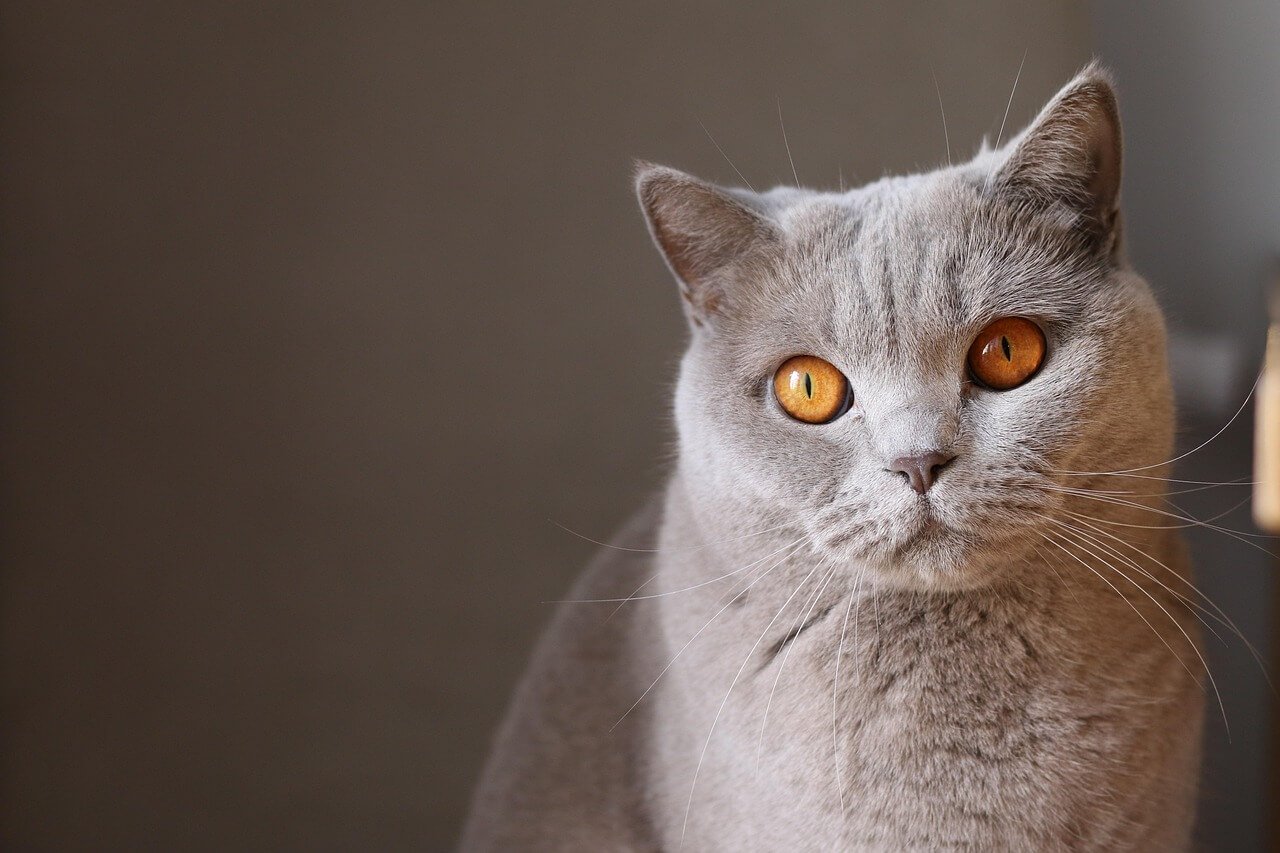How Big Will My Kitten Get? A Guide to Predicting Your Feline’s Growth
Bringing home a new kitten is an exciting adventure filled with cuddles, playtime, and countless adorable moments. However, one question that often crosses the minds of new cat parents is, “How big will my kitten get?” Understanding your kitten’s growth potential can help you prepare for their future needs—whether it’s choosing the right food, toys, or even deciding if your home has enough space for a full-grown feline companion. In this guide, we’ll explore the factors that influence a kitten’s size, how to estimate their adult weight, and tips to ensure they grow up happy and healthy.
What Determines How Big Your Kitten Will Get?
A kitten’s eventual size is influenced by a combination of genetics, nutrition, and overall health. While some factors are beyond your control, others can be managed to support optimal growth. Here’s what plays a role in determining your kitten’s size:
Genetics :
The size of your kitten’s parents and breed significantly impacts their adult weight and height.Breed Differences :
Some breeds, like Maine Coons, naturally grow larger than others, such as Siamese cats.Nutrition :
High-quality kitten food rich in protein and essential nutrients supports healthy development.Health Conditions :
Illnesses or developmental issues during kittenhood can affect growth patterns.Spaying or Neutering :
Early spaying or neutering may slightly impact growth due to hormonal changes.
Understanding these factors helps set realistic expectations for your kitten’s growth journey. By focusing on what you can control, you can give your kitten the best chance to reach their full potential.
Predicting Your Kitten’s Final Weight: Tips and Tricks
While every kitten grows at their own pace, there are ways to estimate their adult size based on their current weight and age. These methods aren’t foolproof but provide a helpful guideline. Here’s how to make an educated guess:
Double Their Weight at 16 Weeks :
Multiply your kitten’s weight at 16 weeks by two to estimate their adult weight.Monitor Growth Patterns :
Track your kitten’s weekly weight gain to identify consistent trends.Consult Breed Standards :
Research typical weights for your kitten’s breed or mix of breeds.Ask Your Veterinarian :
Your vet can assess your kitten’s growth curve and provide professional insights.Observe Parental Traits :
If possible, compare your kitten’s size to their parents’ or siblings’ sizes.
Estimating your kitten’s adult size is both fun and practical. Remember, each cat is unique, so embrace the surprises along the way!
Check this guide 👉What Age to Introduce a Kitten to a Dog: Best 7 Tips!
Check this guide 👉When Is a Cat No Longer a Kitten? Best 7 Expert Tips!
Check this guide 👉How to Tell How Many Kittens a Cat Will Have: Best 7 Tips!

Factors Influencing Kitten Size | Tips for Supporting Healthy Growth |
|---|---|
Genetics | Provide a balanced diet tailored for kittens |
Breed | Schedule regular vet check-ups |
Nutrition | Avoid overfeeding to prevent obesity |
Health Conditions | Keep vaccinations up to date |
Spaying/Neutering | Encourage safe, supervised exercise |
How to Tell If Your Kitten Is on Track for Healthy Growth
Monitoring your kitten’s development ensures they’re growing at a healthy rate. Certain signs indicate they’re thriving, while others may warrant concern. Here’s what to look for:
Consistent Weight Gain :
Kittens should steadily gain weight without sudden spikes or drops.Playful Energy Levels :
Active behavior shows they have the energy needed for growth.Shiny, Healthy Coat :
A glossy coat reflects good nutrition and overall health.Proper Socialization Skills :
Interaction with humans and other pets indicates emotional well-being.Regular Eating Habits :
A healthy appetite suggests they’re getting the nutrients they need.
If your kitten exhibits these signs, they’re likely on the right path. Any concerns should be discussed with your veterinarian promptly.
Pitfalls to Watch Out for During Your Kitten’s Growth Phase
Raising a kitten involves learning curves, and avoiding common mistakes can make all the difference in their long-term health and happiness. Here are pitfalls to steer clear of:
Overfeeding :
Too much food can lead to rapid, unhealthy growth and obesity.Skipping Vet Visits :
Missing routine check-ups may delay detection of underlying issues.Feeding Adult Cat Food :
Kittens require specialized formulas designed for their developmental needs.Ignoring Dental Care :
Poor oral hygiene can lead to dental problems later in life.Neglecting Playtime :
Lack of physical activity can hinder muscle development and mental stimulation.
By sidestepping these errors, you’ll create a nurturing environment where your kitten can flourish. Prevention is always better than cure!
Why Nutrition Plays a Key Role in Your Kitten’s Growth
A well-balanced diet is the foundation of your kitten’s growth and overall health. Providing the right nutrients ensures they develop strong bones, muscles, and a shiny coat. Here are signs that your kitten is getting the nutrition they need:
Consistent Energy Levels :
A healthy kitten should have plenty of energy for play and exploration throughout the day.Healthy Stool Consistency :
Firm, well-formed stools indicate proper digestion and absorption of nutrients.Bright, Clear Eyes :
Well-nourished kittens often have vibrant, clear eyes free from discharge or cloudiness.Strong Immune System :
Fewer illnesses or infections suggest their diet supports a robust immune response.Appropriate Weight Gain :
Steady, gradual weight gain without excessive fat buildup reflects balanced nutrition.
A nutritious diet sets the stage for lifelong health. By observing these signs, you can ensure your kitten is thriving on their current feeding plan.
Tracking Your Kitten’s Development Through Key Stages
Kittens grow rapidly during their first year, reaching several important milestones along the way. Understanding these stages helps you gauge whether your kitten is developing normally. Here are some key milestones to watch for:
Opening Their Eyes (7–10 Days) :
Kittens typically open their eyes within the first two weeks of life, signaling early sensory development.Starting to Walk (3 Weeks) :
By three weeks old, most kittens begin taking their first wobbly steps.Weaning Off Milk (4–6 Weeks) :
Around this age, kittens transition from mother’s milk to solid food.Teething (3–6 Months) :
Baby teeth fall out as adult teeth come in, marking another phase of maturity.Sexual Maturity (5–9 Months) :
Kittens reach sexual maturity, which may influence behavior and energy levels.
Tracking these milestones allows you to celebrate your kitten’s progress while staying alert to any delays or concerns. Every step brings them closer to adulthood.
Strengthening Your Relationship During Their Growth Phase
As your kitten grows, nurturing a strong bond ensures a lifetime of trust and companionship. Building this connection requires patience, consistency, and plenty of love. Here are some tips to deepen your relationship:
Engage in Playtime Daily :
Interactive toys like feather wands or laser pointers stimulate both physical activity and mental engagement.Offer Gentle Handling :
Regularly petting and holding your kitten builds comfort and trust in human touch.Use Positive Reinforcement :
Reward good behavior with treats or praise to encourage desirable habits.Talk to Your Kitten Often :
Speaking softly helps them recognize your voice and feel reassured by your presence.Respect Their Boundaries :
Allow your kitten space when they seem overwhelmed or need alone time.
Building a strong bond takes time but pays off in spades. As your kitten matures, this connection will form the backbone of your relationship, ensuring mutual happiness for years to come.
Frequently Asked Questions About Kitten Growth
At what age does a kitten stop growing?
Most kittens reach their full size between 10–12 months, though larger breeds may take up to 18 months.
Can I predict my mixed-breed kitten’s size?
Yes, by observing their growth pattern and consulting your vet, you can make an educated estimate.
How much should I feed my kitten daily?
Follow feeding guidelines on kitten food packaging or ask your vet for personalized advice.
Why is my kitten smaller than others their age?
Genetics, nutrition, and health conditions can all contribute to variations in size.
Should I worry if my kitten isn’t purring yet?
Not necessarily; some kittens start purring later than others, especially shy ones.
Final Thoughts: Embracing Your Kitten’s Growth Journey
Watching your tiny bundle of fur grow into a confident, full-sized feline is one of the joys of pet parenthood. While predicting exactly how big your kitten will get involves some guesswork, understanding the factors that influence their growth can help you prepare for their future. Whether they end up being petite or towering over other cats, the most important thing is providing love, proper care, and a safe environment. Cherish every stage of their development, knowing that your efforts today lay the foundation for a lifetime of happiness together. So, sit back, enjoy the journey, and celebrate the unique personality your kitten brings into your life!
Do Cats Have Taste Buds? Best 7 Expert Tips! – Discover how cats experience flavors and why their taste is so unique.
Do Dogs Have Taste Buds? Best 7 Expert Tips! – Discover how dogs experience taste, their preferences, and what it means for their diet and health.
Can Cats Taste Sweet? Best 7 Expert Tips! – Discover why cats can’t taste sweetness, how it affects their diet, and tips to keep them healthy and happy.
Can Dogs Taste Sweet? Best 7 Expert Tips! – Discover how dogs perceive sweetness, which foods are safe, and tips to manage their sweet cravings responsibly.





